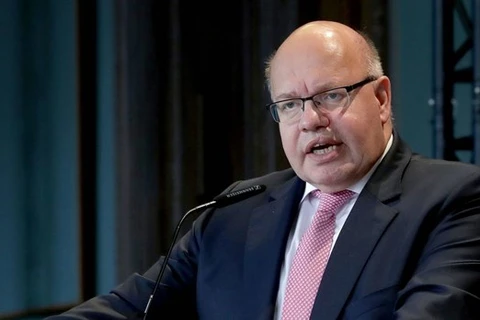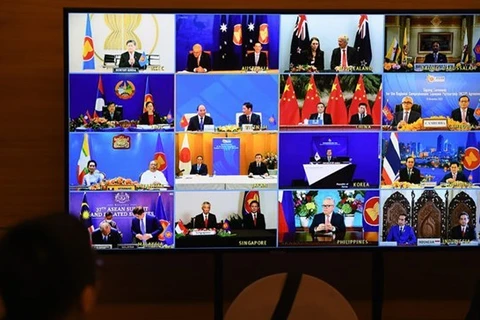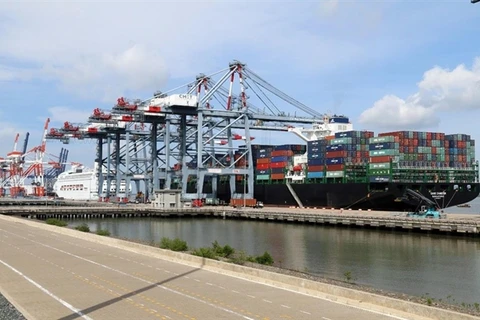Hanoi (VNA) - The formation of the world’s largest free trade area under the Regional Comprehensive Economic Partnership (RCEP) will create a stable and long-term export market for Vietnam, thereby contributing to enforcement of the policy on building an export-oriented production sector.
According to economist Dr. Vo Tri Thanh, RCEP will bring about positive effect on not only sectors of Vietnam’s strength that are joining production and supply chain such as apparel, leather and footwear, and wooden furniture, but also other sectors such as tourism, education, entertainment, health care and retail, especially support industries and relevant services.
Asked about specific impacts that the RCEP will exert on Vietnam, together with the signed Comprehensive and Progressive Agreement for Trans-Pacific Partnership (CPTPP) and the European Union – Vietnam Free Trade Agreement (EVFTA), the economist said when looking at an FTA, the first specific benefit is market access due to the sharp drop in tariffs (usually to zero percent). Overall, the tariff reduction under the RCEP is higher than those in other deals, thus bringing greater benefits.
Looking back on Vietnam’s commercial activities in the past, the principle of origin was usually between ASEAN and a member state. However, when a common ASEAN + agreement is formed with partners, this principle of origin is applied to the entire bloc, thus creating both favourable and new conditions to enhance benefits from trade and investment, according to Thanh.
He noted that in fact, East Asia is the region where the production-trade linkage and supply chains are considered the most developed and dynamic in the world. Therefore, the RCEP region creates a new opportunity for investment, production-trade and further promotes production and supply chains.
Finally, it could be seen that though the development level varies, cooperation to strengthen the capacity of weaker nations will produce a positive effect.
Elaborating on the specific benefits that RCEP brings to Vietnam as well as the challenges that Vietnam must overcome in order to take advantage of opportunities from this deal, Dr. Vo Tri Thanh said the benefits are huge in terms of market access, trade-investment exchange in the region as well as creating supply chains or attracting investment around the world.
He was quick to add that however, that did not mean that everything goes well without any challenges.
In addition to improving institutional and corporate capacity, it is important to note that in this region, Vietnam runs huge trade deficit with partners such as China, the Republic of Korea and ASEAN, but the country posts trade surplus with other nations such as the US and the EU.
That means apart from understanding and tapping RCEP to facilitate the efficiency of joining supply chains, Vietnam must also pay attention to other markets.
In fact, it is Vietnam’s strategy, he said, noting that besides FTAs with countries in the dynamic region, Vietnam also joins FTAs with other major markets such as CPTPP or EVFTA.
“Thus, we must review production and trade activities in an overall context in order to both improve competitiveness and enhance the efficiency of trade and investment,” he said.
With the signed FTAs, from a pure trade perspective, many trade agreements do not bring too many benefits, but we need to look at them in terms of value and supply chains to improve investment efficiency.
Regarding the linkage among signed free trade deals, Dr. Vo Tri Thanh said over the past two decades, there have been discussions on bilateral and multilateral FTAs, with opinions expressing concern that apart from positive impacts, they could result in “distortions” because only countries in the FTA “club” could enjoy such benefits.
Generally, Asia-Pacific nations support multilateralism and the World Trade Organisation because such a common global agreement like the WTO (despite its limited trade and investment depth) will benefit all stakeholders and there will be less distortion in resource allocation.
Thanh stressed that however, it is hard to find a common thing. Due to different development levels and rising protectionism, it is impossible to find the best choice, he said, adding that the RCEP deal will gradually move toward a more open and wider region./.
























